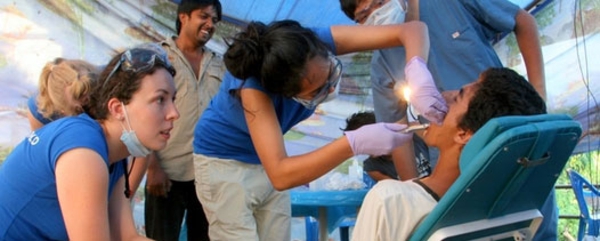Medical electives have in the recent past been stressed upon by medical schools all over the world as part of the curriculum. While most universities are not stringent in dictating where their students go for electives, it has now emerged that developing countries are becoming the preferred destinations, especially for students who study in the first world countries. Interestingly, these are people who have never been to a country where poverty is the order of the day.

In their countries of origin, sophisticated machines such as Computed Tomography (CT scan) and Magnetic Resonance Imaging (MRI) are the order of the day. In developing countries, the situation on the ground is quite different. Such machines are considered luxuries, and although a few elite can afford them, it is beyond the reach of the vast majority. A few may look at it from the half empty glass perspective, but it is not such a bad thing. You learn to do a lot with limited resources. You learn how to improvise. The greatest advantage is the chance for you to sharpen your clinical acumen. Clinical symptoms and a few basic tests become vital in clinching a diagnosis, and more often than not, the results are impressive.
For a medic, the chance to save lives means a lot. That is indeed the calling, and nothing is more satisfying. An elective term in a developing country presents a perfect chance to meet this objective. There are a few specialists and consultants, but these are not enough to cater for the ailing population. The few doctors who are available have loads of patients to see; it is amazing how much they do. To cut the long story short, it is a superb chance to lend a helping hand to these doctors, who by the way appreciate medical students. You will not be wholly responsible for the management of patients, but at least you get some hands on experience, with good supervision. The little or the much you do towards the recuperation of a patient will go a long way towards helping you become a good doctor.
Maladies have some respect for geographical zones. European countries tend to have a lot of non-communicable diseases as these are the leading causes of mortality. Developing countries on the other hand have a significant bunch of communicable diseases, though non communicable diseases are on the rise due to lifestyle changes and emulation of western cultures. An elective term in a developing country is thus a great opportunity to learn all there is to know about communicable diseases, with live patients facilitating this process. You therefore get to interact with these diseases firsthand, which helps you to grasp the concepts of symptoms, signs on physical examination, treatment approaches as well as prognostic indicators. Not to say that you will not be exposed to other types of diseases – you will be amazed to find lots of patients with hypertension, diabetes, cancers and connective tissue disorders.
It is also a great chance to tour the world and feed your eyes with the appalling beauty that is bestowed upon different countries. Developing countries have some breath taking sceneries in form of mountains, hills, gorges, wildlife, valleys, lakes and oceans. For example, visit Tanzania or Kenya in August and you will get to see the eighth wonder of the world as thousands of wild beasts migrate through dangerous canyons and rivers where merciless crocodiles wait to make a kill. Such amazing scenes do not form part of our day to day life, and so when a chance to visualize what is featured on National Geographic live emerges, it should be grabbed with both hands.
John Ross has been involved with healthcare programmes in the developing world since 2008. John strongly recommends Work The World for medical, dental, nursing and physiotherapy placements in Africa, Asia and South America.

